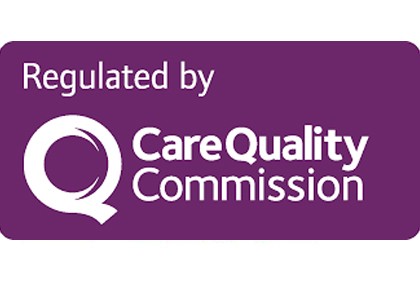What people say
The staffs are Unicare are very delightful , with such a willing and helpful personality. Thanks Unicare
Unicare Client
0208 239 6877
download now

Learn more about our companions and carers
Here’s what our clients say about Unicare Live-in Care
Call us on 0208 239 6877 or request a call back

Cost is a significant factor when you’re considering any form of care. So knowing your options – from healthcare funding to benefits entitlement – will help you make a better decision and lift a weight from your shoulders. Our friendly advisors are always here to help.
If you have complex, ongoing healthcare needs, you may be eligible for Continuing Healthcare (CHC), a package of care arranged and funded entirely by the NHS. Your eligibility is determined by an assessment, which looks closely at your needs before recommending the level of care you should receive.
Personal Health Budgets were introduced to give anyone eligible for NHS Continuing Healthcare more freedom over how they receive it. Your Personal Health Budget is paid as a tax-free sum – how much will depend on your needs – that you can use to set up a care package with the provider of your choice.
NHS Continued Healthcare is awarded when your primary need for care relates to your health. The assessment will look in detail at how complex, intense or unpredictable your needs might be.
As a first step, ask your GP for an initial assessment. If the outcome suggests you may be eligible, you’ll be referred for a full assessment by a team of healthcare professionals – a Clinical Commissioning Group – who will make a final recommendation.
If you are entitled to NHS Continuing Healthcare, you’ll be asked how and where you wish your care to be received and which organisation(s) you would like to provide it.
Being deemed eligible for NHS Continuing Healthcare whilst living at home does not mean that other benefits to which you may be entitled will stop. For example, if you were already claiming Disability Living Allowance or Attendance Allowance, you would continue to do so as normal.
Care to Be Different, an organisation that helps eligible families secure NHS Continuing Healthcare funding. You can find out more about them and request their help.
Even if you are deemed ineligible for NHS Continuing Healthcare, there are other care funding options open to you. Please read the Social care funding, Benefits entitlements and Privately funded care sections below to find out more.
If your financial assets – typically your savings, investments and your property (if you live alone) – are worth over £23,350, you are deemed to be
a full cost payer and will not receive any state funding for your care needs.
If your financial assets are worth between £14,250 and £23,350 you will receive part funding for your care needs.
Rather than accepting a care package from your local authority, you can receive your funding as direct payments into your bank account and use them to pay the care provider of your choice. If necessary, you can top up the payments yourself to cover any shortfall.
Many of our customers use their direct payments to help fund the outstanding care we provide. To find out more, please call one of our friendly advisors on 0208 239 6877.
Even if you are deemed ineligible for social care, there are other care funding options open to you.
Please read the Healthcare funding, Benefits entitlements and Privately funded care sections below to find out more.
Every one of us is entitled to an assessment of our care needs from our local authority. Unlike healthcare funding, it will be means tested.
So if you are eligible for social care, a financial assessment will establish if you need to fund all or part of the cost.
When you’re exploring the options for funding live-in care, it’s easy to overlook a state benefit to which you might be entitled. So as a first step, it’s worth making sure you’re claiming everything you can.
We’ve listed the main benefits here, but you may be able to claim others, depending on your circumstances. Not all of them are means tested and could provide a valuable contribution to your care costs.
Anyone aged over 65 with a continuing need for personal care because of a physical or mental disability can claim Attendance Allowance (AA). If eligible, you’ll receive weekly amounts of either £57.30 (if you need care during the day) or £85.60 (for care day and night). AA is non-means tested and tax-free. You can apply by completing an online form.
The Personal Independence Payment (PIP) replaced the Disability Living Allowance as a tax-free, non-means tested benefit. It provides financial assistance to anyone between the ages of 16 and 64 dealing with long term ill-health or disability.
The amount you might receive will vary between £22.65 and £145.35 per week, depending on your individual needs, which will be assessed by a health professional. You can claim for PIP or Attendance Allowance, but not both. Apply for PIP by calling the Department of Work and Pensions on 0800 917 2222.
There are two parts to Pension Credit, both based on your income. The first, called Guaranteed Credit, is designed to top up your state pension if your weekly income falls below a minimum threshold.
The second is Savings Credit, which you might receive in addition to Guaranteed Credit, or on its own. It’s a payment that rewards you for making some provision for your retirement. The quickest way to apply for Pension Credits is by calling the Department for Work and Pensions on 0800 99 1234.
If your savings are less than £16,000 you may qualify for reduced council tax payments. With a formal diagnosis of dementia, you may even become exempt. If you already claim a single occupancy reduction, you won’t lose this entitlement if you have a live-in carer. To find out more, you should contact your local authority.
Even if you are not entitled to any state benefits, there are other care funding options open to you.
Please read the Healthcare funding, Social care funding and Privately funded care sections on this page to find out more.
Immediate Care Plans (ICPs) are a tax-efficient way of covering all or part of your care costs. The plan will pay an agreed, tax-free amount at regular intervals, directly to the care provider, for as long as care is needed. Payments can be set to rise over time, to keep pace with any increases in cost. A lump sum is required to purchase the plan, with the calculation being based on your age and health.Immediate Care Plans (ICPs) are a tax-efficient way of covering all or part of your care costs. The plan will pay an agreed, tax-free amount at regular intervals, directly to the care provider, for as long as care is needed. Payments can be set to rise over time, to keep pace with any increases in cost. A lump sum is required to purchase the plan, with the calculation being based on your age and health.
You may be able to benefit financially from releasing an amount of equity in your property to fund your care costs. It’s a manageable way to raise capital, income or a combination of the two while continuing to live in your own home.
If you are deemed ineligible for social or healthcare funding, don’t worry. We advise many thousands of customers who find themselves in that situation.
We work in partnership with Symponia – respected specialists in financial care planning – who can help you structure your finances in a way that removes worry and doubt from the future. Here are just a couple of the options you might consider…


We understand that the cost of care is a major consideration when looking for later life support options, which is why we believe it’s important to help…


Cost is a significant factor when you’re considering any form of care. So knowing your options – from healthcare funding to benefits ….


Live-in care is fast becoming the preferred choice for those who need extra help to stay at home. Gone are the days when moving into a care home was inevitable…


For anyone requiring support and assistance with their personal care but who wishes to retain an independent lifestyle, hiring a live in carer provides…
The staffs are Unicare are very delightful , with such a willing and helpful personality. Thanks Unicare
Unicare Client
Please complete our short assessment form and one of our specialist team on live-in care will be in touch shortly.














